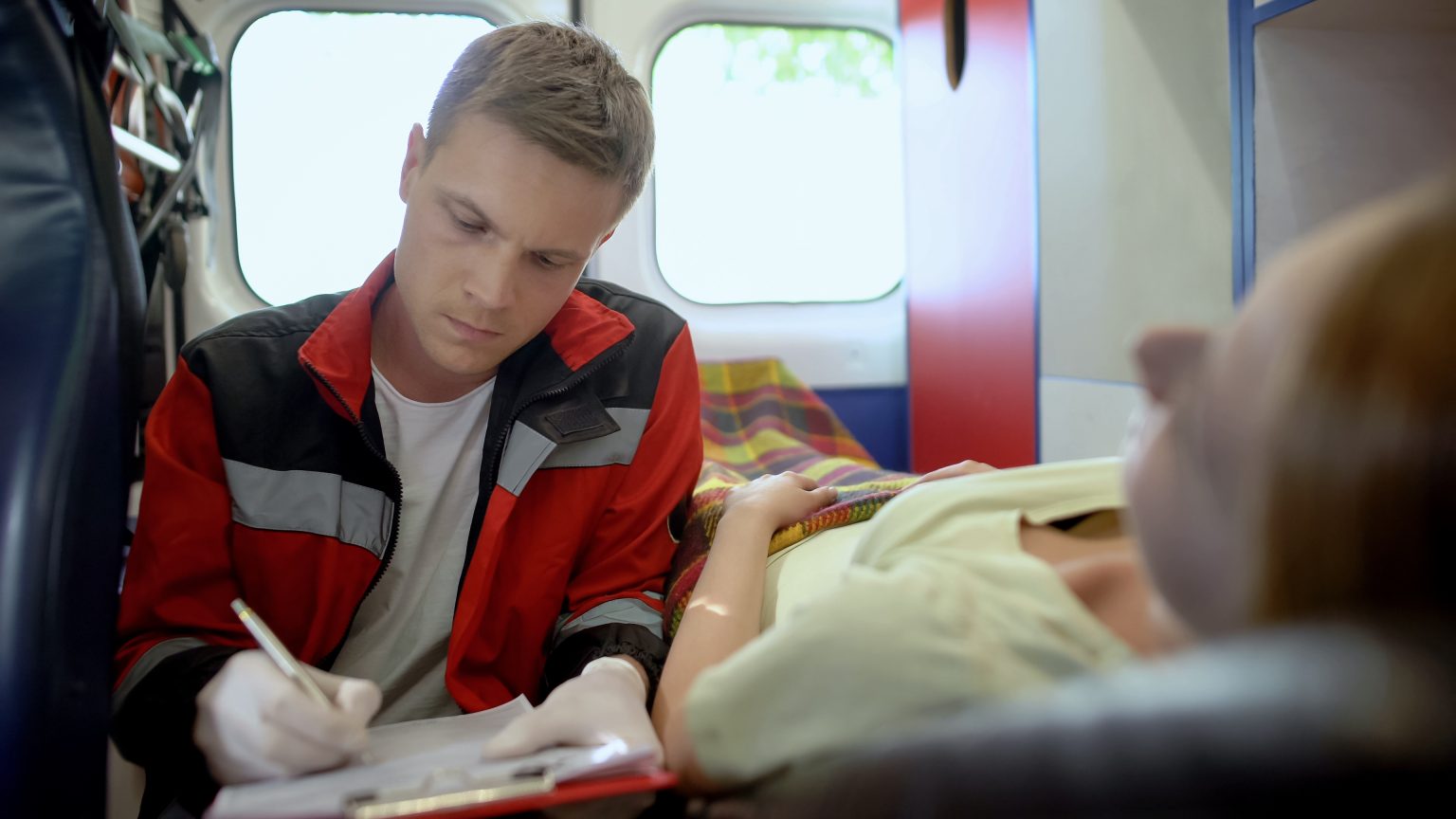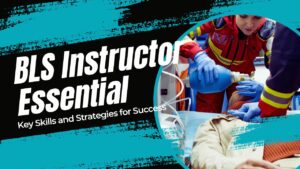It’s 3 a.m. and you’re breathing life back into a victim of a heart attack and sudden cardiac arrest. Their existence is hanging by a thread, and you’re their lifeline. As an EMT, you’ll bring hope and comfort out of life’s worst moments. You’ll even learn how to crack jokes while transporting a patient in an ambulance. Just to ease the tension and make them smile.
But before you can join the legions of EMTs, you’ll have to undergo extensive training. And the best way to succeed is knowing how to prepare for EMT school. Many of our instructors here at SureFire CPR are experienced EMTs and Paramedics who know firsthand what to expect in EMT school. We’ve made it easy for you EMT hopefuls out there with our guide on how to best prepare for EMT school.
How to Get into EMT School
Before you scour the internet for EMT training programs, you’ll need to have a few prerequisites under your belt. These can vary depending on your program and state, but basic EMT school requirements across the nation include:
- A high school diploma or GED
- Basic Life Support (BLS) Certification
- Health insurance
- Physical examination and screenings of tuberculosis and hepatitis B
- A criminal background check and drug test
- Ability to lift 100 pounds
Most EMT hopefuls are able to check off all the requirements from their list – with BLS certification saved for last. Need help finding the right BLS course? At SureFire CPR, we offer industry-leading BLS courses that meet EMT school requirements. Even better – many of our BLS instructors are also EMTs and can bring you up to speed on EMT program standards.
Choosing the Right EMT School
Now back to the scouring. As you search for the right EMT school, it’s crucial to find a training program approved by the Commission on Accreditation of Allied Health Education Programs (CAAHEP). Here’s a tip: your local emergency care training facilities, community colleges, and trade schools are the best places to look for accredited EMT training programs. As a cheat sheet, the CAAHEP also offers an online database of accredited EMT schools.
What to Expect in EMT School
Just ask any EMT in your circle. EMT school isn’t a breeze – there’s no doubt about it. If it was easy, anyone could do it. But the truth is, your training should be challenging. Everyday certified EMTs are putting their knowledge and skills to the test. So should you. It will all pay off when you know exactly what to do under the high pressure stakes of traumatic scenes. EMT school is also designed to give you the extra push needed to pass the NREMT exam – the certification needed to work as an EMT. Here’s a rundown of the basics.
How Long is EMT School?
EMT school generally requires 120 to 150 hours of education, taking between six months to two years to complete. Most EMT students spend an extra two hours studying for every hour of lecture. In total, you can expect to take around 350 hours to complete EMT school. If you’re on a tight time crunch, there are some accelerated full time programs that can be done in as little as 4 weeks.
How to Pass EMT School
There are no shortcuts to success, but knowing what to expect in EMT school will make the journey so much easier. Here are our top tips on how to pass EMT school:
- Read the Book
Coming out at about 1,000 pages, it’s tempting to skip out on reading the textbook. But the truth is, it’s the foundation of learning the essential skills you’ll need to succeed as an EMT – not to mention passing your NREMT certification. You’ll learn topics including airway, respiration and ventilation, cardiology and resuscitation, and more. Take the time and study hard. The info you learn will help you be the difference between life and death.
- Complete the Workbook
Apart from reading the book, the workbook is perhaps the second most important key to passing EMT school. In fact, it’s basically a cheat sheet – or cheat book – to help you pass the NREMT exam. Keeping up with workbook assignments will also help you ace class exams and quizzes.
- Study and Take Practice Tests
Utilize different study techniques that work best for you, whether it’s making flashcards, reviewing study guides, or taking sample exams. Those NREMT skills sheets they give out on the first day of class? You’ll be tested on most of these skills on the NREMT exam. They’re your new best friends.
- Make Friends with Your Classmates
There’s no day out in the field without working as part of a team. You’ll be spending long hours with your partner responding to 911 calls, resuscitating patients, and comforting families during the most traumatic moments of their lives. Building relationships with your classmates will help you learn how to work together comfortably as a team.
- Practice Your Interpersonal Skills
You’ll be a major player in a defining situation in your patients’ lives. Building a rapport with your patients and coming in ready to serve their needs will help you gain their trust. If you’re a naturally reserved or shy person, EMT school is the best place to practice your interpersonal skills. You may not know it, but patients will always remember your smile, your words – how you made them feel in their most intimate moments.
Start Your EMT Career with SureFire CPR
Excited to jump into a new career as an EMT? SureFire CPR can help you get started on the right path with our BLS certification classes. You’ll gain the essential skills needed to meet basic EMT school requirements, such as performing CPR, operating an Automated External Defibrillator (AED), resuscitation procedures, and more. Contact us today to learn from our experienced EMTs, Paramedics, and Nurses and get started!







